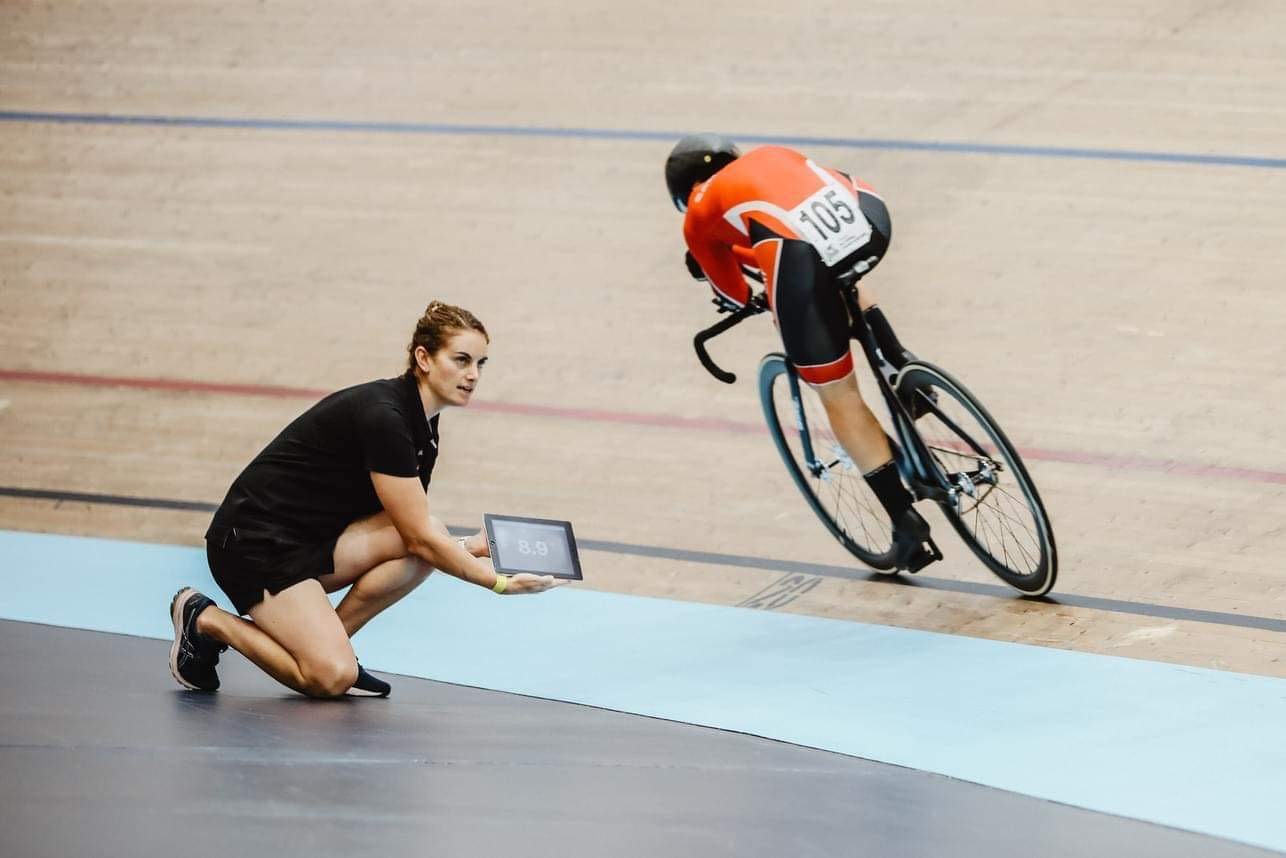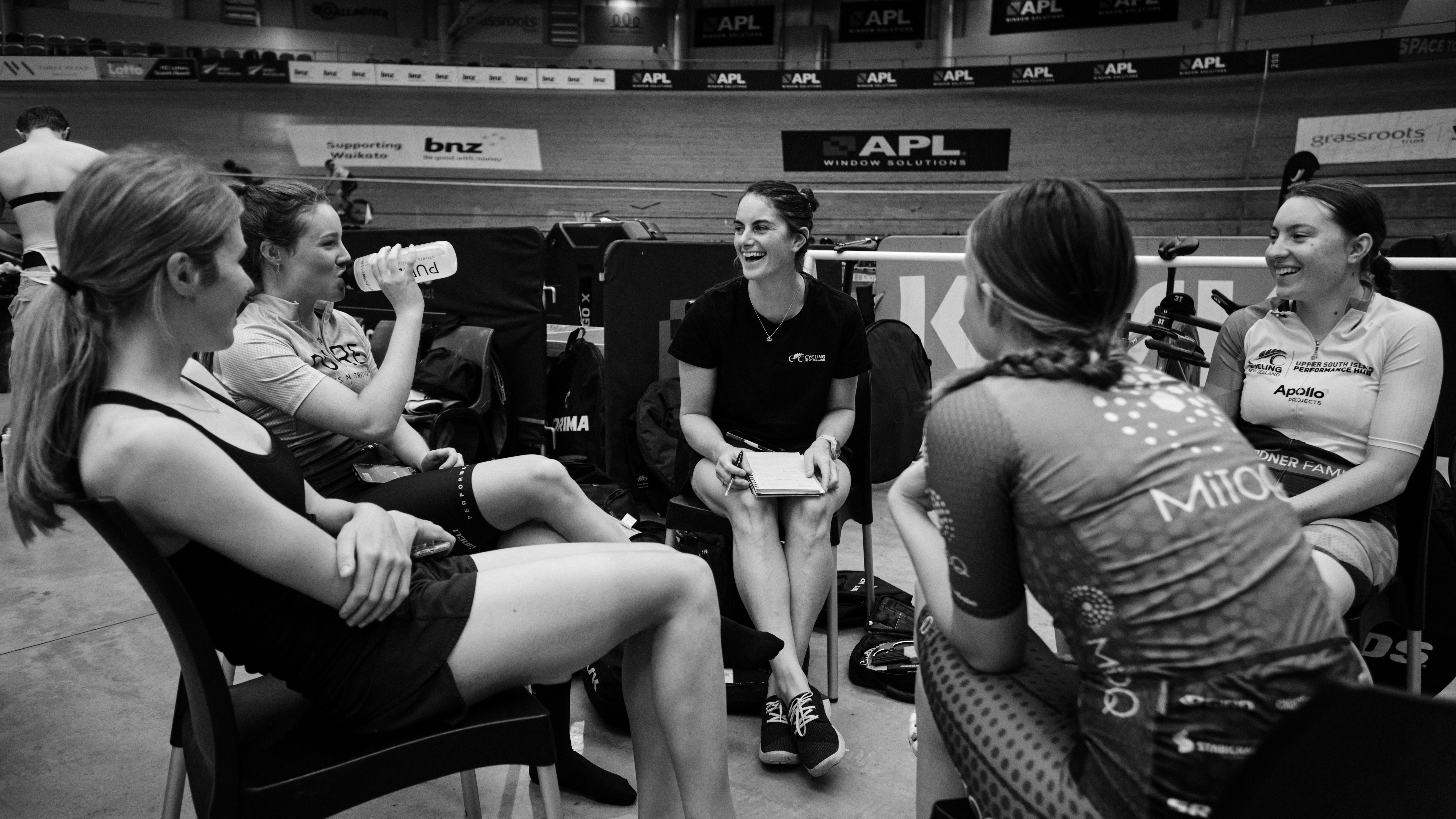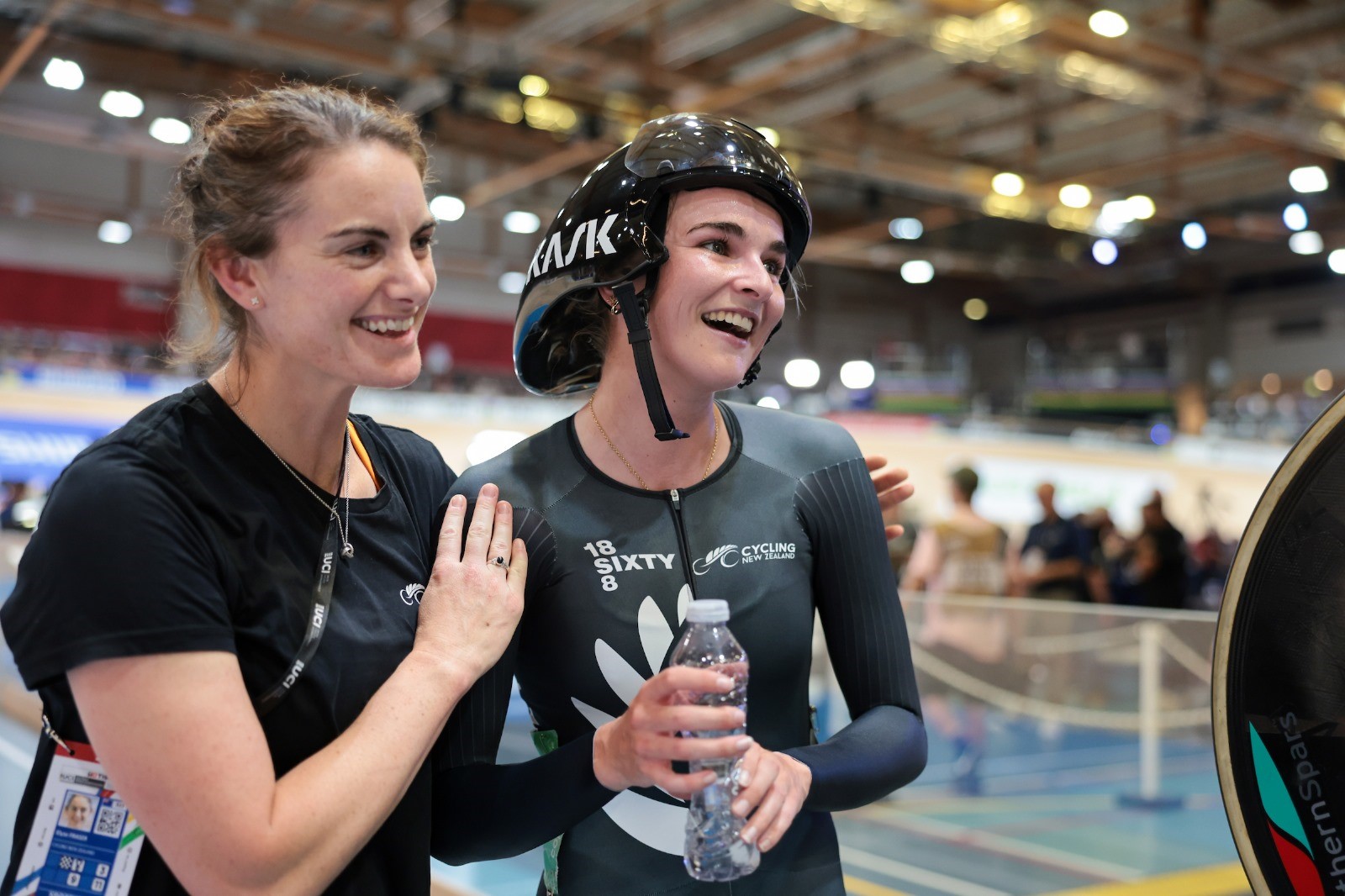Elyse Fraser
Elyse Fraser
- Coach Profile
When a struggling young track cyclist reached out to Elyse Fraser for coaching a few years ago, it unexpectedly set Fraser on a new path.
The former elite track cyclist and police officer didn’t have cycling coaching on her horizon and now she’s forging a pathway for female cycling coaches.
“I was taken aback because I wasn’t looking to coach anybody, but her story really resonated with me.”
The young athlete at the time was overtrained, under fueled and unwell but was determined to pursue track cycling. Despite still recovering from her own athletic journey, Fraser felt compelled to help.
From working with the young athlete to get healthy and back thriving on her bike, more requests came from other cyclists to coach them.
In June 2023, Fraser was appointed Endurance Development Coach at Cycling New Zealand, working with both male and female riders. While she aspires to one day lead a high-performance programme, she’s focused on learning the craft.
“The more I know the more I realise I don’t know,” laughs Fraser. “I love giving back to sport and seeing young people thrive.”
Fraser, in a few short years with support from Cycling NZ, has invested in her own coaching development firstly as a graduate of the High Performance Sport Te Hāpaitanga coaching programme and then as part of the Residency Experience.
Both experiences, say Fraser, were invaluable from understanding what true high performance is to developing connections with other female coaches, which she has found particularly important coming from a traditionally male dominated profession.
As part of Te Hāpaitanga, Fraser went to the UCI to complete the Level 3 coaching course as well as the Certificate of Advanced Studies (CAS) which is a UCI course run in conjunction with the University of Lausanne – furthering anchoring her expertise.
Fraser emphasises that while education is vital, time on the track is essential to grow as a coach.

“There’s a gap between learning theory and applying it. I’ve been fortunate that Cycling NZ coaches have trusted me with those hands-on opportunities.”
Fraser says former Cycling NZ lead women’s endurance coach, Paul Manning, was incredible at leading her and guiding her as a coach, stepping aside himself to make space for her own progress.
“At the Elite Track World Championships last year in Denmark, Paul pushed me into the head coaching position, not only giving me valuable experience but confidence in my ability to step up. It was so empowering”
Fraser never felt that Manning saw her gender as a barrier to coaching at a high-performance level and reflects that having a few key people that make you feel safe as coach is really important.
Last year also brought the opportunity to work with Paralympian, Nicole Murray, after Fraser was approached to join the coaching team of the eventual Paralympic bronze medalist.

The calm head of Fraser when Murray forgot her prosthetic before the 3000m individual pursuit qualifying ride was reassuring to Murray in a moment of panic.
An athlete-centred mindset—deep empathy paired with performance focus—is something Fraser brings from her own experience.
“As an older athlete, I knew my body well but didn’t feel heard. Now, I make space for athletes to give feedback—they know their bodies better than anyone.”
Now on maternity leave, Fraser is continuing to navigate new territory – not only as a coach, but as a mother. With strong backing from Cycling NZ and peers from her development programs, she’s building a blueprint for future female coaches.
“I’ve had some really honest reflections from a coaching spectrum of new Mums to Mums with older kids, which has been so helpful.”
“Cycling NZ have never been in this position with a female coach so I’m trying to bring the organisation along on this journey.”
After a phenomenal rise into national coaching ranks, Fraser is determined to continue to show up as a coach not only for the riders but for the future female coaches looking to her and believing it is now possible.

Coaches Korero Quick Fire
Why did you get into coaching?
I was approached by a teenage track cyclist who was after a new coach. This took me by surprise but I really enjoyed helping her.
Who inspired/inspires you as a coach and why?
I’ve had so many people support me but two people stand out for me. Firstly, Raelene Bates. As a teenager doing athletics Raylene coached me. She was awesome and it’s been cool to watch her journey. It was special to be at the Paralympics with her as a coach and also as the Chef de Mission.
Secondly, my rowing coach at the University Rowing Club, Richard Parr. He was stern but cared about you as a person. I really felt that and it’s been really important for me to recognise this as a coach.
What has been your biggest learning as a coach?
Wow I’m learning all the time! The biggest lesson for me is that the athlete generally has the answers – so don’t come in knowing the best way for them without listening first. I’ve realised when athletes feel safe and comfortable that they can share their experience – that’s when the really richness comes out.
What are you most proud of as a coach?
Working with the first athlete who started my coaching journey. She was so unwell and it took us 18 months of working really closely with her as a support team. Seeing her healthy and go on to do some cool things on the bike internationally was hugely rewarding.
What is the biggest challenge you have had as a coach?
Women are so underrepresented in cycling in New Zealand. Turning up to nationals and never feeling a part of it or feeling you’re not being taken seriously is difficult. At times there’s been inconsistency in how some coaches are treated respectfully and some are not. In saying that, there are so many coaches who are super supportive of me and my coaching journey.
How do you want to be remembered as a coach?
Someone who truly cared about my athletes and always strived to do what was best for them. I aimed to provide clear, honest guidance and performance feedback, even when it meant delivering tough messages. I believe this approach requires both empathy and a genuine understanding of each individual’s needs.